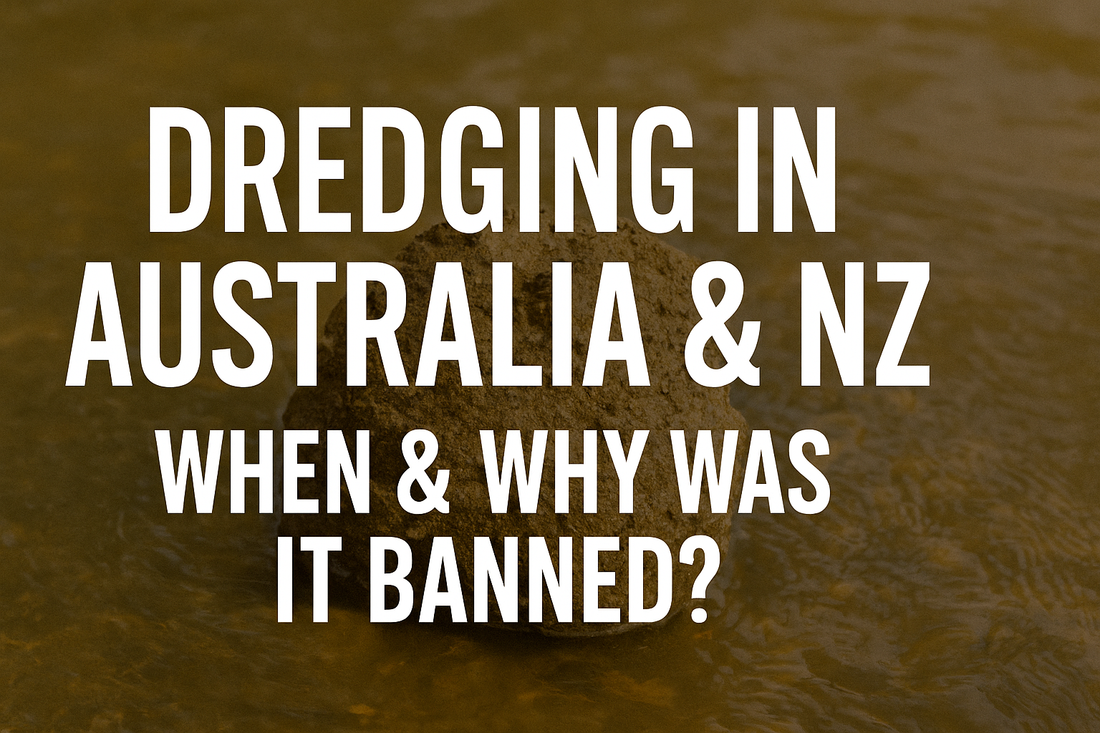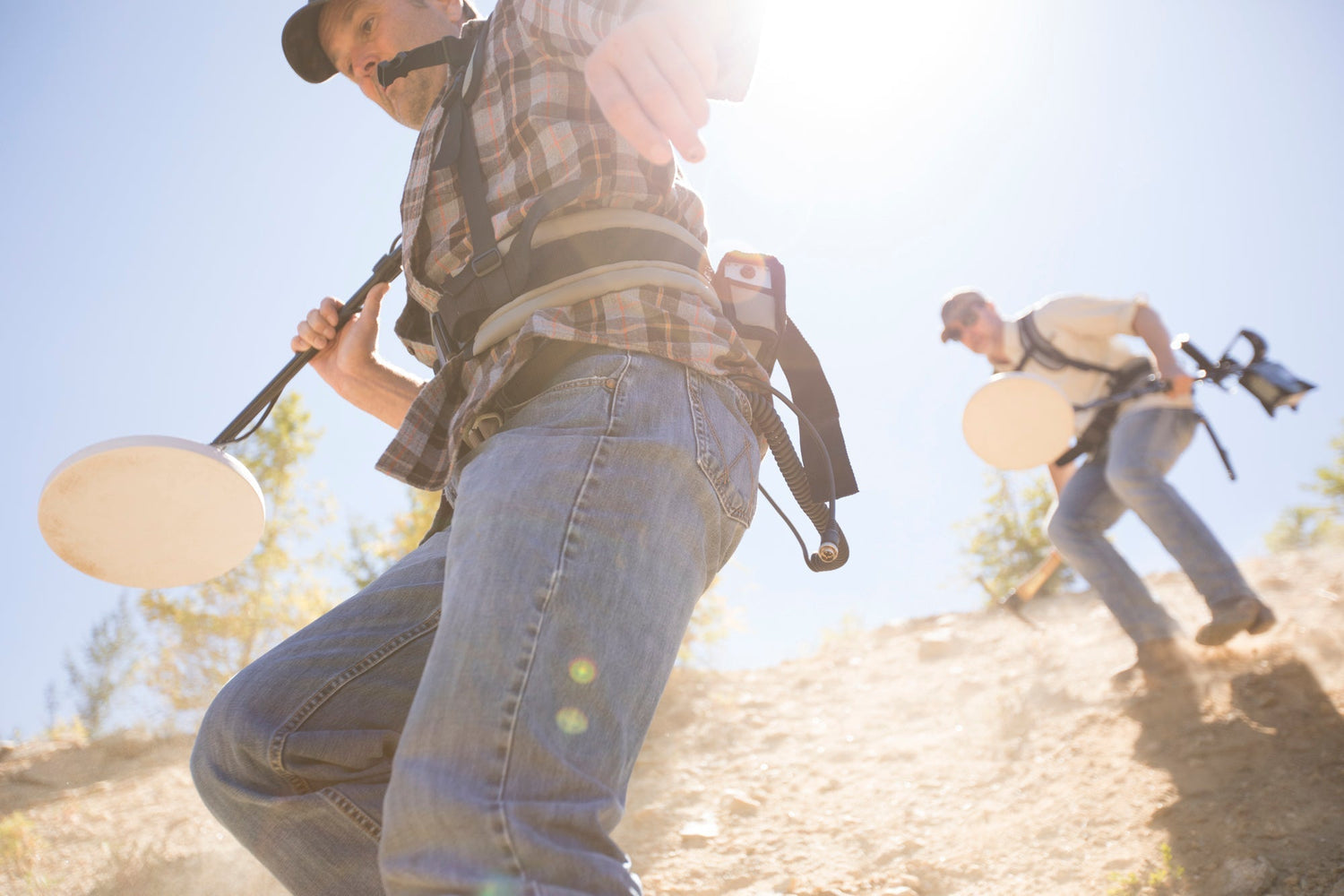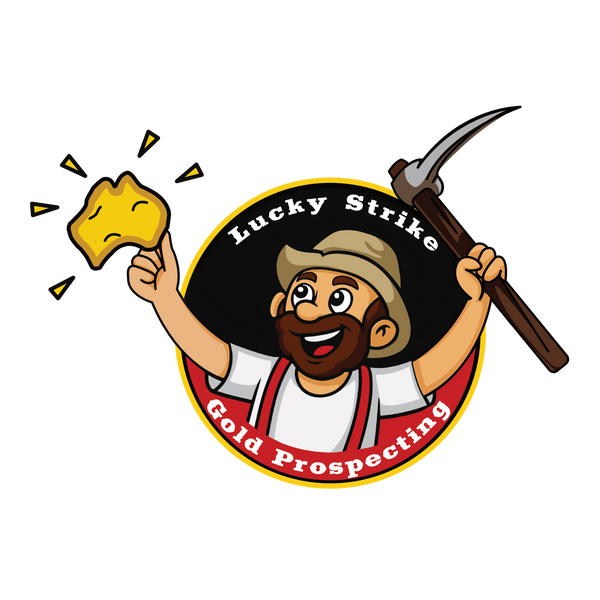
Dredging for Gold: Why It Was Banned in Australia and New Zealand
Share
Gold dredging was once a common and effective method of extracting gold from riverbeds and waterways in both Australia and New Zealand. But today, it’s either heavily restricted or outright banned in most parts of both countries.
So, what happened? When did dredging become illegal — and why?
What Is Gold Dredging?
Gold dredging typically involves using a floating suction dredge — a motorised pump with a nozzle and hose — to vacuum gravel and sediment from the bottom of a creek or river. The material is then run through a sluice box to capture gold, while the remaining sediment is discharged back into the water.
It’s a highly efficient way to process large volumes of material, and it gained popularity among hobbyists and small-scale prospectors during the 1980s and 1990s.
Why Was It Banned?
The main reasons dredging has been restricted or banned are:
-
Environmental Impact
Dredging disturbs riverbeds and aquatic ecosystems. It can increase sedimentation downstream, damage fish spawning grounds, and alter the flow of waterways. Over time, even small-scale operations can cause significant cumulative damage to fragile environments. -
Water Quality Issues
Stirring up sediment can release heavy metals or pollutants previously buried in the riverbed. In some areas, dredging has been linked to increased turbidity (cloudiness in water) and reduced water quality for drinking, farming, and recreation. -
Cultural and Heritage Protection
Many rivers and streams run through culturally sensitive areas or sites with historical significance, particularly for Indigenous communities. Dredging in these areas can damage sacred sites and disturb traditional land and water use.
When Did It Become Illegal?
Australia
The rules around dredging vary by state, but most banned recreational suction dredging from the late 1990s to early 2000s.
- Victoria: Suction dredging is illegal under the Mineral Resources (Sustainable Development) Act 1990. The ban came into effect primarily due to environmental concerns, and only hand tools are allowed for fossicking.
- New South Wales & Queensland: Suction dredging is not permitted without extensive permits, and recreational use is effectively banned.
- Western Australia: Dredging is generally prohibited without specific environmental approvals, which are nearly impossible for hobbyists to obtain.
New Zealand
New Zealand took a slightly different path. While dredging is still legal in some regions, it requires a resource consent (similar to an environmental permit) under the Resource Management Act 1991. Over the past two decades, many regional councils have tightened rules, and most recreational dredging is now confined to private land or specific zones with strict conditions.
Can I Dredge Anywhere Today?
In short — very rarely.
In Australia, recreational dredging is essentially banned across all states. Only hand tools (pans, sluices, picks, etc.) are allowed for prospecting without a mining licence.
In New Zealand, small-scale suction dredging may be allowed with permission — but it's complex, and often not worth the red tape for casual prospectors.
What Are the Alternatives?
If you’re keen to recover fine gold from creek beds or alluvial ground, you still have options:
- Highbankers: While also regulated, highbankers (with water recycling systems) are sometimes allowed on private land in Australia with a valid miner’s right or lease.
- Hand sluices and pans: Fully legal in most states and still very effective.
- Metal detecting: The go-to method across much of Australia, especially with modern VLF and pulse induction detectors that can handle mineralised soil.
Final Thoughts
Dredging may have been efficient, but the environmental cost proved too high. While it’s now off-limits for most hobbyists, there are still plenty of ways to enjoy the thrill of the hunt — responsibly and legally.
Always check with your state’s or region’s mining and environmental authorities before heading out. The rules can change, and being informed keeps you (and the rivers) safe.





